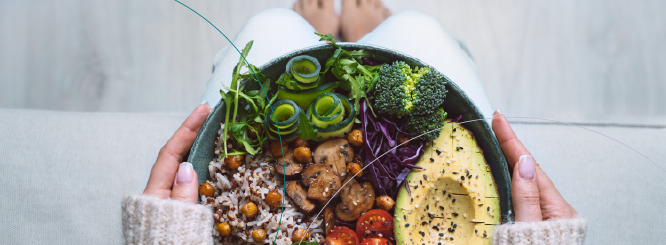Bariatric surgery is not the ultimate end of your weight loss journey. As per doctors, it is the very beginning of a healthy lifestyle. After the surgery, what you eat and how many healthy habits you indulge in will decide if your surgery’s results will last long or go in vain.
No matter the type of surgery you undergo, the surgeon will give you a long list of dietary instructions that you must follow to maintain the lost weight. Your new eating habits will also keep you healthy in the long run.
Your surgeon will fix an appointment with a registered dietician and they will discuss the right diet, depending on various factors, such as your current weight, your age, gender, and more.
What is the Purpose of Diet after Bariatric Surgery?
A gastric bypass diet plays a huge role in maintaining your healthy weight years after the surgery. If you stick to these healthy eating habits, you will not gain unwanted weight in the long run. The diet serves the following purposes.
- Allowing your stomach to heal naturally without being damaged by the unhealthy food you eat.
- Getting you used to consuming small portions of the food so that you don’t have issues digesting it.
- Helping you lose weight and avoid weight gain.
- Avoiding common side effects or complications of the surgery.
What Does the Meal Look Like After Bariatric Surgery?
- Right after your surgery, the surgeon will put you on a non-carbonated liquid diet for two weeks. During this period, you will be allowed to only consume a liquid diet. No solid food should go inside your stomach during the first week.
- The surgeon will suggest you slowly advance to eating pureed foods after two weeks. The typical meals will include healthy pureed items, free from oil, starch, and other substances.
- After two weeks of eating pureed foods, you can switch to a more filling diet with soft foods. At this stage, the meals must be tender, and not the regular meals you would consume before surgery.
- Around 45-50 days after the surgery, they will allow you to return to your regular diet, however, with some changes. Ensure you eat healthily and follow all the dietary habits to maintain a healthy weight.
- You will be kept on the same diet for at least 6 months after the surgery. Even after 6 months of the surgery, you must follow this diet to keep your weight in check.
What Food Items Should One Consume after Bariatric Surgery?
Here’s the breakdown of food items that you can consume after bariatric surgery.
Liquids
During the first week after the surgery, you can consume liquids like broth, unsweetened juice, milk, decaffeinated tea or coffee, and sugar-free popsicles or gelatin. It is the first stage of eating after surgery, and you must not eat anything more than what has been recommended.
Blended Foods
The pureed or blended food diet includes food items such as lean ground meat (except red meat), fish and poultry, cottage cheese, soft scrambled eggs, cooked cereal, soft fruits, strained cream soups, and blended solid foods in pureed form. You can also eat broth, skimmed meal, juice without sugar, etc.
Soft Foods
After pureed foods, your surgeon and dietician will advise you to slowly shift to eating soft foods that you can consume in 3-5 small meals a day. These include eggs, cottage cheese, rice, cooked cereal, canned or fresh fruits, cooked vegetables without skin, flaked fish, ground lean meat, and poultry.
Solid Foods
Solid foods means you can resort to your regular eating habits whenever the surgeon allows. However, be careful with your eating habits at this point. You can start with eating three meals a day consisting of healthy food items cooked in less oil.
Depending on your food tolerance, the dietician will suggest the consumption of food items like vegetables, bread, red meat in small quantities, highly seasoned foods, nuts and seeds, fibrous vegetables, fresh fruits, popcorn, etc.
Some Important Dietary Tips to Follow
- Besides eating the food as advised, you must keep yourself fully hydrated by drinking at least 64 ounces of fluids a day to avoid dehydration.
- Always eat in moderation. Overeating will do you more harm than good.
- Sip liquids between the meals.
- Eat slowly to avoid dumping syndrome.
- Consume a diet rich in protein.
- Limit the consumption of alcohol.
- Quit smoking.
- Avoid eating junk food as it may lead to unwanted weight gain and also cause digestion problems, especially if you have them during a recovery phase.
- Take vitamin and mineral supplements suggested by the health care team.
- Chew your food correctly before swallowing so that it gets digested well.
- Limit caffeine, especially during the recovery phase as it may lead to dehydration.
- Eat mindfully.
Takeaway
The diet after bariatric surgery plays an integral role in maintaining the results of the procedure. Follow the dietary instructions imparted by the doctor to avoid side effects.
Tired of the constant pain, fatigue, and frustration that come with being overweight? You’re not alone — and there’s help. Dr. Saggu is a compassionate and highly reputed bariatric surgeon in Delhi-NCR, with a track record of guiding thousands toward healthier lives.

